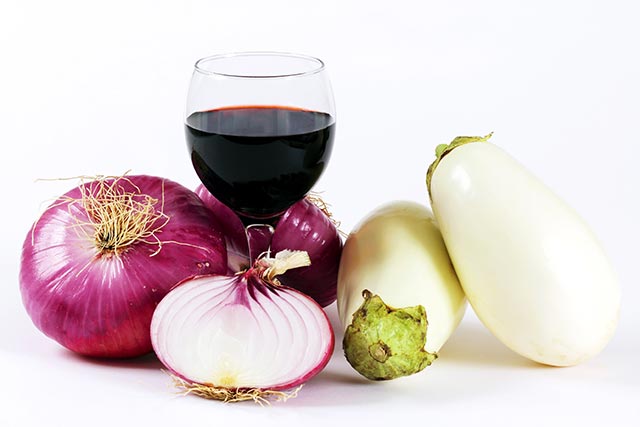Red wine and onions? This unusual combination offers potent cardioprotective benefits
02/01/2019 / By Edsel Cook

By now, we know that both red wine and onions are good for the heart. However, a new Taiwanese study expanded on that by saying that a red wine onion extract is even better at preventing the onset of cardiovascular disease.
Red wine has long been studied for its antioxidant content. The grape-based beverage improves biomarkers that are connected to cardiovascular diseases.
The onion is another highly nutritious food. It contains large amounts of quercetin and other flavonoids that have antioxidant effects. It is also one of the most popular vegetables in the world.
In Southeast Asia, soaking diced onions in red wine creates a food called “red wine onion.” This flavorful combination of vegetable and wine is reported to alleviate constipation, reduce cholesterol levels, and alleviate diabetes and hypertension.
Researchers from the Chung Shan Medical University (CSMU) became interested in the enhanced cardioprotective properties of red wine onion extract. They wanted to determine if the extract could modify the lipid profile, antioxidant level, and inflammatory biomarkers in healthy individuals. (Related: Onion extract naturally improves blood sugar and cholesterol levels.)
Can onions and red wine work together to protect the heart?
For their experiment, the researchers gathered 23 volunteers who showed signs of high cholesterol levels but were otherwise healthy. The participants were randomly distributed between two groups.
One group would drink eight ounces (250 milliliters) of red wine each day. The other group would consume an equivalent amount of red wine onion extract.
The extract was made by chopping up fresh yellow onions and soaking the pieces in red wine. The wine-soaked onions were ground and filtered to produce a strong-tasting liquid.
The treatment period lasted 10 weeks. Of the 13 members of the red wine onion extract group, two were forced to drop out because they could not handle the strong flavor of the extract.
During the trial, the CSMU research team measured the levels of total cholesterol, triglycerides, high-density lipoprotein, and low-density lipoprotein in each participant. They also evaluated the status of the glutathione (GSH), glutathione peroxidase (GPx), and glutathione reductase (GR) antioxidants in the body.
Finally, they also measured the anthropometric parameters of the participants. These parameters include body mass, body weight, height, and the body mass index (BMI).
Red wine onions protect the heart by fighting cholesterol
The results of the CSMU experiment showed that both red wine and red wine onion extract were able to increase the activity levels of GSH, GPx, and GR in the body. These antioxidants slow down or prevent the oxidation of low-density lipoprotein, a process that could lead to cardiovascular diseases.
At the same time, the two treatment methods did not greatly change the anthropometric parameters of the participants. However, the red wine did not affect the cholesterol, triglyceride, and lipoprotein levels of the participants.
In comparison, the red wine extract was able to greatly reduce the levels of total cholesterol and low-density lipoprotein cholesterol in the people who took it. This hypocholesterolemic property may be attributed to the flavonoids from the onions that were added to the red wine.
Furthermore, the extract was also able to control biomarkers like Factor VII that trigger inflammation. Inflammatory conditions are a major contributor to cardiovascular diseases and other health problems.
In sum, the researchers concluded that red wine onion extract was superior to ordinary red wine when it came to protecting the heart from diseases. The extract improved the antioxidant activity and reduced the amount of cholesterol and inflammatory markers present. Thanks to these beneficial activities, red wine onion can reduce the chances of contracting cardiovascular diseases.
Sources include:
Submit a correction >>
Tagged Under:
This article may contain statements that reflect the opinion of the author
RECENT NEWS & ARTICLES
COPYRIGHT © 2017 SUPER FOODS NEWS





















